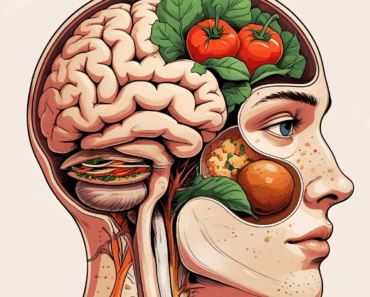Bananas are one of the world’s most popular fruits, loved for their sweet taste, convenience, and versatility. But beyond their appeal as a snack or breakfast staple, bananas pack a nutritional punch that can have a profound impact on your health when eaten daily. From supporting heart health to aiding digestion and even boosting your mood, the benefits of making bananas a regular part of your diet are impressive. This article explores the science-backed effects of eating bananas every day, the nutrients they provide, and important considerations for your health.
The Nutritional Powerhouse: What’s in a Banana?
A medium banana (about 118 grams) contains approximately 105 calories, 27 grams of carbohydrates, 3 grams of fiber, 1 gram of protein, and minimal fat. It’s rich in potassium, vitamin C, vitamin B6, magnesium, and manganese, along with a variety of beneficial plant compounds and antioxidants3469. Bananas are also a source of natural sugars, mainly glucose, fructose, and sucrose, which provide quick energy14.
Key Nutrients in Bananas
| Nutrient | Amount per Medium Banana | % Daily Value (DV) |
|---|---|---|
| Potassium | 422 mg | 9–10% |
| Vitamin C | 10 mg | 11–12% |
| Vitamin B6 | 0.43 mg | 25% |
| Fiber | 3 g | 10–12% |
| Magnesium | 32 mg | 8% |
| Manganese | 0.32 mg | 14% |
1. Supports Heart Health and Blood Pressure
Bananas are renowned for their high potassium content, a mineral essential for maintaining healthy blood pressure and proper heart function1267911. Potassium helps balance sodium levels in the body, relaxes blood vessel walls, and reduces strain on the cardiovascular system. Regular banana consumption is associated with lower blood pressure and a decreased risk of stroke11.
Magnesium and fiber in bananas also contribute to heart health by supporting healthy blood vessels and cholesterol levels712.
2. Aids Digestion and Promotes Gut Health
Bananas are a good source of dietary fiber, including both soluble and insoluble types146. Fiber is crucial for healthy digestion, as it adds bulk to stool, promotes regular bowel movements, and helps prevent constipation. Bananas also contain prebiotics—compounds that feed beneficial gut bacteria and support a balanced microbiome146.
Because they’re easy to digest and gentle on the stomach, bananas are often recommended as part of the BRAT diet (bananas, rice, applesauce, toast) for those recovering from gastrointestinal upset14.
3. Provides a Natural Energy Boost
Bananas are rich in carbohydrates, the body’s primary fuel source, making them an excellent snack for quick energy146. Their natural sugars are released steadily into the bloodstream, especially when paired with the fiber content, helping to avoid rapid spikes and crashes in blood sugar46. This makes bananas a popular choice for athletes and anyone needing a pre- or post-workout snack469.
4. Helps Regulate Blood Sugar
Despite their sweetness, bananas have a moderate glycemic index, thanks to their fiber content, which slows the absorption of sugar into the bloodstream146. This can help prevent blood sugar spikes and crashes, making bananas a suitable choice for most people, including those managing blood sugar levels—though pairing them with protein or healthy fats can further stabilize their impact16.
5. Supports Weight Management
Bananas are relatively low in calories and high in fiber, which helps you feel full and satisfied after eating67. The resistant starch in unripe bananas acts like soluble fiber, slowing digestion and promoting feelings of fullness, which may help with weight management and appetite control7.
6. Enhances Mood and Reduces Stress
Bananas contain vitamin B6, which is involved in the production of neurotransmitters like serotonin and dopamine—chemicals that regulate mood and promote feelings of well-being7. They also provide tryptophan, an amino acid that the body converts into serotonin, potentially helping to reduce stress and anxiety7. Vitamin B9 (folate) in bananas has antidepressant properties, and the fruit’s magnesium content may help relax muscles and support restful sleep7.
7. Supports Muscle and Nerve Function
Potassium and magnesium are vital for proper muscle contraction and nerve signaling7. Eating bananas daily can help prevent muscle cramps, especially after exercise, and support overall muscle health7. While evidence is mixed, many athletes use bananas as a natural remedy for cramping and post-workout recovery7.
8. Promotes Healthy Skin and Vision
Bananas are a source of antioxidants, including vitamin C and various carotenoids, which help protect skin cells from oxidative damage and support collagen production78. The manganese in bananas also supports skin health, while the carotenoids are converted into vitamin A, essential for good vision and eye health7.
9. May Reduce Risk of Certain Diseases
Kidney Health
Regular consumption of bananas is linked to a lower risk of kidney disease and kidney cancer, thanks to their phenolic compounds and high potassium content, which help the body eliminate excess calcium and reduce kidney stone formation7.
Cancer Prevention
Bananas contain lectin and vitamin C, both of which have antioxidant properties that may help protect against cell damage and lower the risk of cancer, including leukemia in children2.
Asthma
Some studies suggest that the antioxidants and potassium in bananas may reduce the risk of wheezing and asthma in children, although more research is needed2.
10. Supports Immune Function
Vitamin C in bananas helps bolster the immune system, aiding in the body’s defense against infections and illness68. The fruit’s antioxidants further support immune health by neutralizing harmful free radicals8.
11. Improves Oral Health
Bananas are soft and easy on the teeth, but their vitamin C content also supports gum health and helps prevent periodontal disease8. Diets high in fruit, including bananas, have been linked to better oral health and reduced inflammation in the gums8.
12. Hydration and Electrolyte Balance
Bananas provide essential electrolytes—potassium, magnesium, and sodium—that help maintain fluid balance in the body, especially important after exercise or during hot weather79. This makes bananas an excellent food for rehydration and recovery.
13. May Aid in Sleep Quality
Bananas contain tryptophan and magnesium, both of which support relaxation and may improve sleep quality by helping the body produce melatonin and serotonin57.
14. Supports Brain Function
The B vitamins, natural sugars, and antioxidants in bananas help fuel the brain, supporting concentration, memory, and cognitive performance15.
Are There Any Downsides to Eating Bananas Every Day?
For most healthy people, eating one or two bananas a day is safe and beneficial369. However, excessive consumption could lead to issues such as:
-
Weight gain: Bananas are relatively high in carbohydrates and calories compared to some fruits, so eating too many could contribute to excess calorie intake3.
-
Blood sugar spikes: People with diabetes or those monitoring blood sugar should pair bananas with protein or healthy fats to minimize spikes16.
-
Hyperkalemia: Extremely high intake of potassium (from many bananas plus other sources) could be harmful for people with kidney problems, but this is rare in healthy individuals9.
-
Digestive discomfort: Eating too many bananas may cause bloating or constipation due to their fiber content1.
How Many Bananas Should You Eat Per Day?
Experts generally recommend one to two bananas per day as part of a balanced diet369. This amount provides a significant boost of nutrients without risking excess calorie or potassium intake for most people.
The Bottom Line
Eating a banana every day can have wide-ranging positive effects on your body—from supporting heart and digestive health to boosting mood, energy, and immune function. Bananas are a convenient, affordable, and nutrient-dense fruit that fit easily into most diets. For best results, enjoy bananas as part of a varied diet, pairing them with proteins and healthy fats, and savor their many health benefits.
References:
All claims in this article are supported by scientific evidence and expert opinion from reputable sources, including Healthline, Medical News Today, Prevention, Verywell Health, and WebMD12346789101112.
- https://www.prevention.com/food-nutrition/a62407290/banana-every-day-healthy/
- https://www.medicalnewstoday.com/articles/271157
- https://www.healthline.com/nutrition/how-many-bananas-a-day
- https://www.verywellhealth.com/banana-benefits-11702772
- https://www.youtube.com/watch?v=WJxerpp9kFM
- https://www.healthline.com/nutrition/11-proven-benefits-of-bananas
- https://www.medicinenet.com/is_it_good_to_eat_banana_daily_12_health_benefits/article.htm
- https://www.healthdigest.com/365677/what-really-happens-to-your-body-when-you-eat-a-banana-every-day/
- https://www.delish.com/food-news/a64233761/is-it-bad-to-eat-banana-every-day/
- https://www.webmd.com/vitamins/ai/ingredientmono-1595/banana
- https://www.anfponline.org/docs/default-source/legacy-docs/wy/documents/october-newslettera1695e7539cb6942bde0ff00001872c1.pdf
- https://health.clevelandclinic.org/benefits-of-bananas
- https://www.jpost.com/health-and-wellness/article-855718
- https://www.youtube.com/watch?v=IRhWAmy8OT8
- https://www.eatthis.com/downsides-eating-banana-every-day/
- https://www.dagens.com/health-0/is-eating-a-banana-daily-a-good-idea-a-nutritionist-weighs-in








